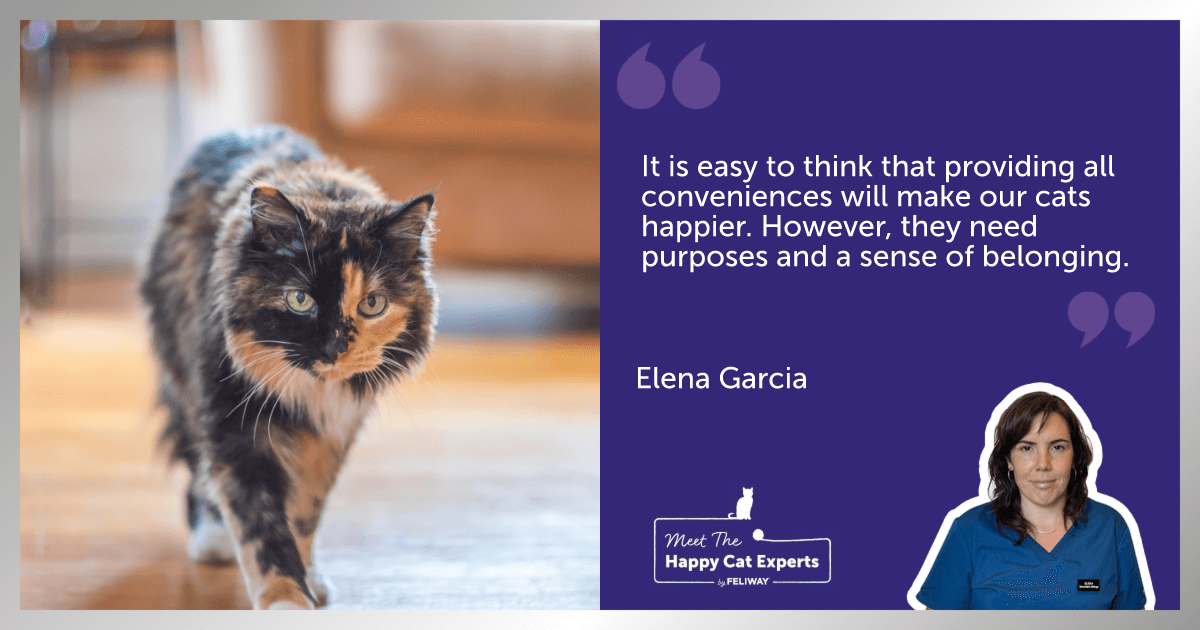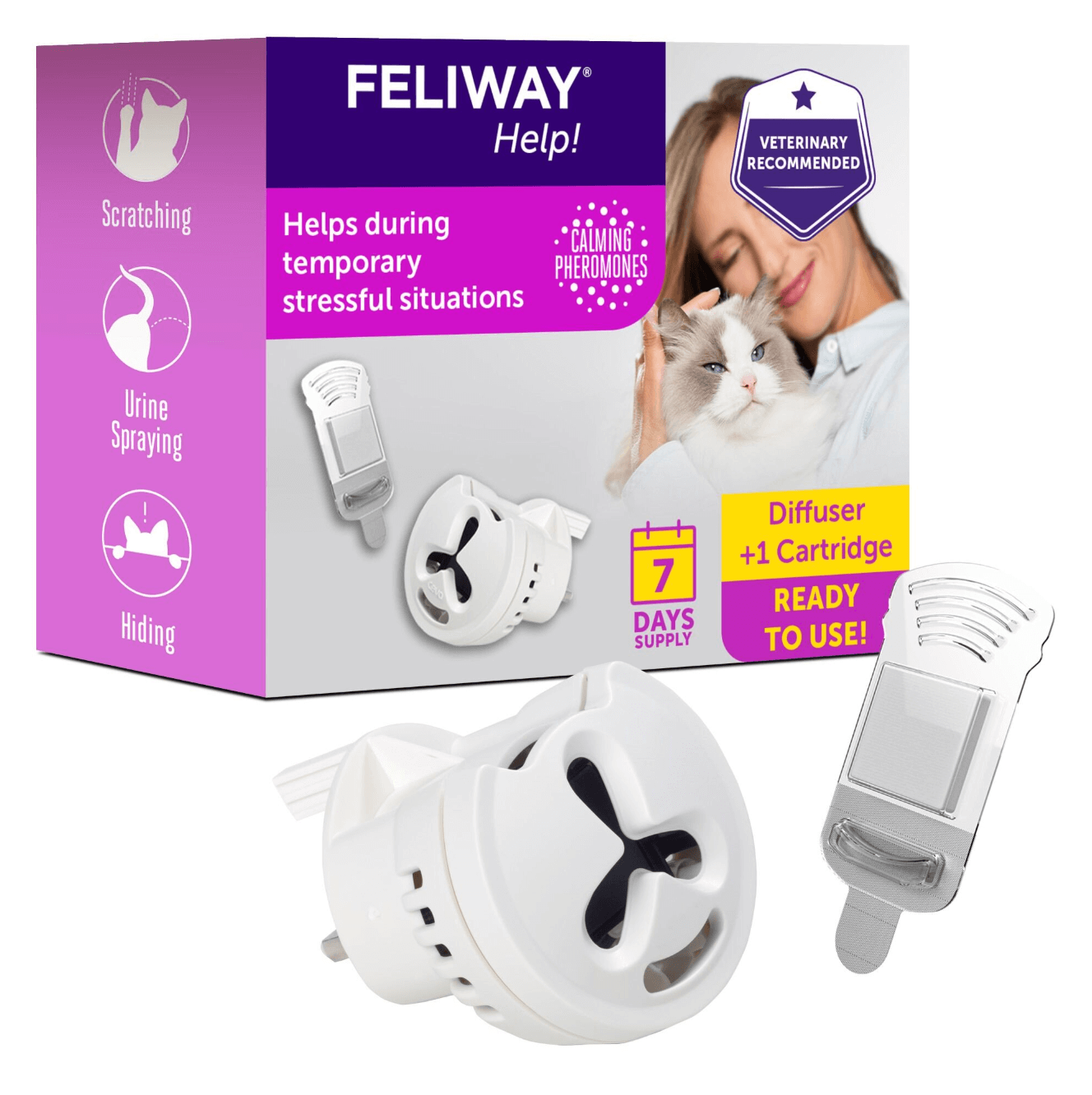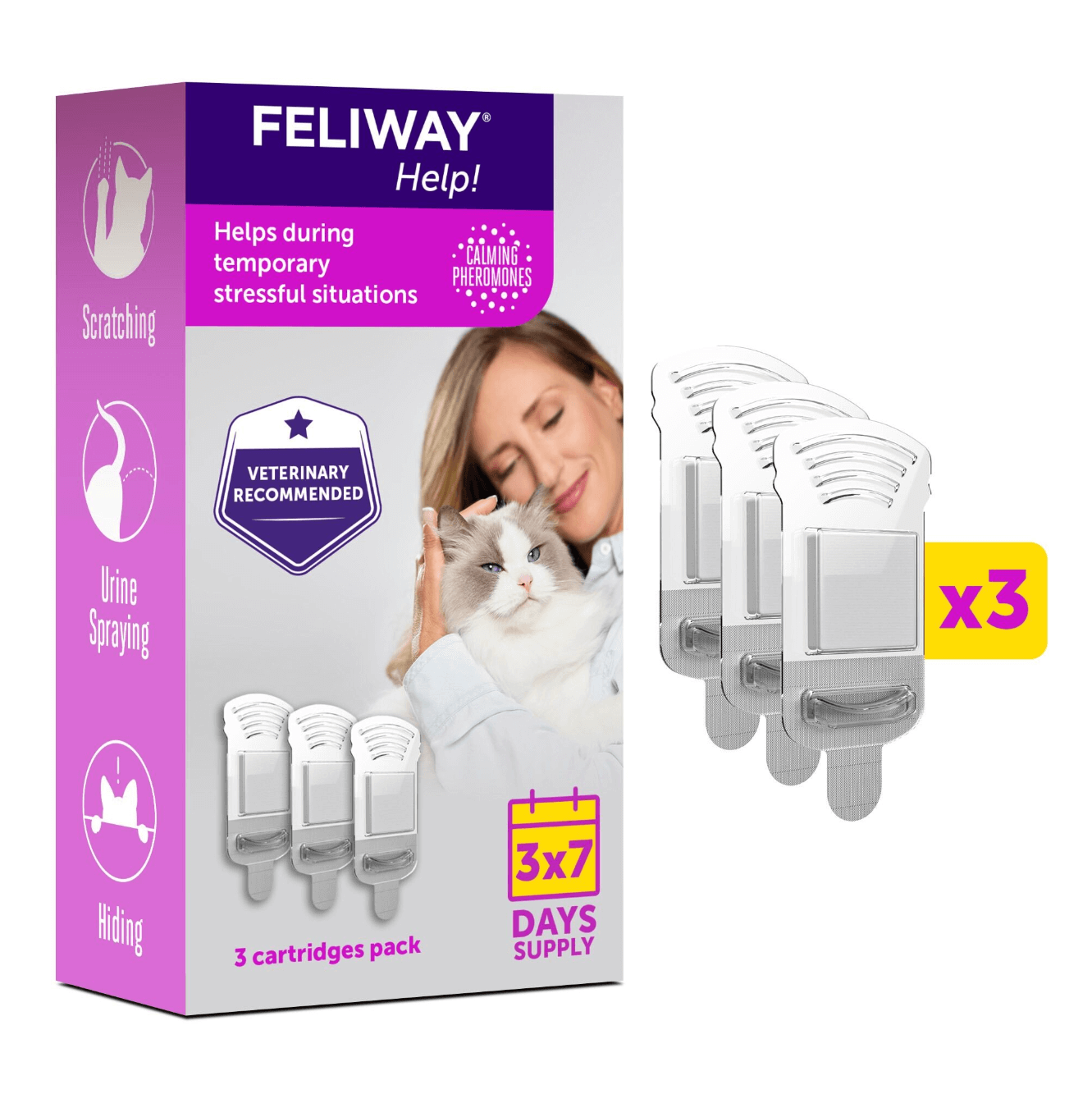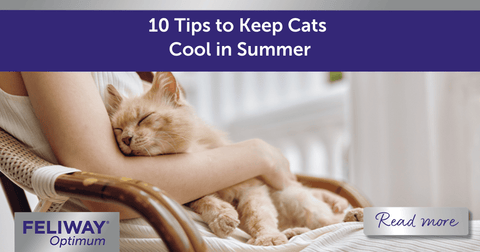
How to Keep Elderly Cats Active: A Happy Cat Expert Explains!
As our cats age, their fragility increases. This means they are less capable of withstanding and recovering from life's adversities and stressful situations, such as illnesses, moving house, or the arrival of a new family member. Often, we see their vitality diminish; they become more apathetic, interact less with us and their surroundings, and spend more hours resting.
Is there something we, as caretakers, can do to care for older cats and boost their vitality? Fortunately, the answer is yes. Follow these senior cat care tips that are just as suitable for younger cats as they are for our older felines.
By Elena Garcia, Happy Cat Expert
Tip 1: Regular Physical Activity
Motivating a cat to move might seem challenging, but it's simply a matter of finding the right motivation.
Olfactory stimulation through scent, although not commonly utilised, can be an excellent tool. Placing items with pleasant and novel scents can significantly encourage even the oldest cat to move around their territory. Cats that are very food-motivated make this easier, as we can place various food-filled items throughout the space for them to find.
Tip 2: Adequate Rest
When rest is not of good quality, more hours in the day are needed compared to when rest is adequate. In short, the better quality the sleep, the more likely your cat is to be active at other times. However, cats are crepuscular animals (meaning they are most active at dawn and dusk), so their habits often conflict with ours.
Especially for elderly cat care (but this is applicable to younger cats too), it is advisable to create a space that is as isolated as possible, so the cat can rest while we go about our morning routines. It should also be comfortable, elevated, easily accessible, and covered, ensuring the best sleep possible.
When living with an older cat, it's essential to ensure they are physically able to reach their resting areas. If they have mobility issues or any other condition, look for supports such as stairs or stable ramps to make sure they can access higher areas without excessive difficulty.
Tip 3: Healthy Diet
When we talk about a healthy diet, we refer not only to what our cats eat but also to how they eat it. A high-quality diet tailored to their age and activity level, provided frequently via commercial or homemade dispensers in various areas of the home, offers significant health benefits for elderly cats. This includes increasing physical exercise, environmental enrichment, and exploration of their surroundings.

Tip 4: Stress Management
Stress is an inherent part of life, and both young and older cats face stressful situations every day. The problem arises when cats are unable to cope with it or recover from it. This ability decreases with age, making it especially important to care for senior cats in managing stress.
Besides avoiding stressful situations, we can help them recover through relaxation exercises, olfactory stimulation, and providing quiet areas for them to rest. Pheromone diffusers like FELIWAY Optimum can also be plugged into the room they spend most of the time to help reassure them.
Tip 5: Having a Purpose in Life
It is easy to think that providing all conveniences and eliminating worries will make our cats happier. However, they need purpose and a sense of belonging.
In feline behaviour, these concepts are becoming increasingly recognised and make a lot of sense. Therefore, we should strive to give our cats a purpose in life. This essentially involves caring for their territory (scratching and scent marking), playing, exploring, grooming, and maintaining healthy social relationships. We must encourage all these activities by adding spread out resources.
Tip 6: Healthy Social Relationships
We must foster a healthy social relationship with all family members – whether human, canine, or feline – depending on each household's situation. A healthy relationship means that cats are not afraid of each other, can respect and tolerate each other's presence, and interact pleasantly. With cats, we sometimes mistake the fact that they sleep together or groom each other as a sign of a healthy relationship, but this is not necessarily the case.
To ensure you promote good coexistence, make sure there are enough resources available and that you offer positive things to each cat in the presence of the other. This way, they will be less likely to compete with each other.

Tip 7: Regular Medical Care
At all ages, but especially when caring for older cats in their advanced years, regular and preventive medical care is indispensable. Specifically, our cats should not only receive reactive care to illness.
We must consider that the sooner we detect an illness and the more preventive actions we take, the more likely our cat will successfully cope with it. Regular vet visits are essential, particularly to check for oral and joint pain issues. These can have a very silent onset and pose a significant problem for our cats’ well-being.
Tip 8: Encouraging Autonomy
As they age, some cats tend to demand access to certain places or food, such as reaching a window or the sofa. We should encourage our senior cats to be autonomous in obtaining all the resources necessary for their well-being: food, access to resting places, safe zones, water bowls, litter trays, and so on. This way, we avoid creating more dependency on us.
By following these senior cat care tips, you can improve your cat's vitality. We recommend not trying to implement them all on the first day but gradually increasing their activities. Just like people, each cat has their preferences, and little by little, you will discover what type of activity motivates your cat the most and which does not.
For more tips and advice on caring for cats of all ages, why not explore our range of articles online! We have everything from in-depth guides from our team of Happy Cat Experts to fun insights from our cats’ points of view! And don’t forget, to stay up to date with all the latest news and info, you can also sign up to our newsletter.




































